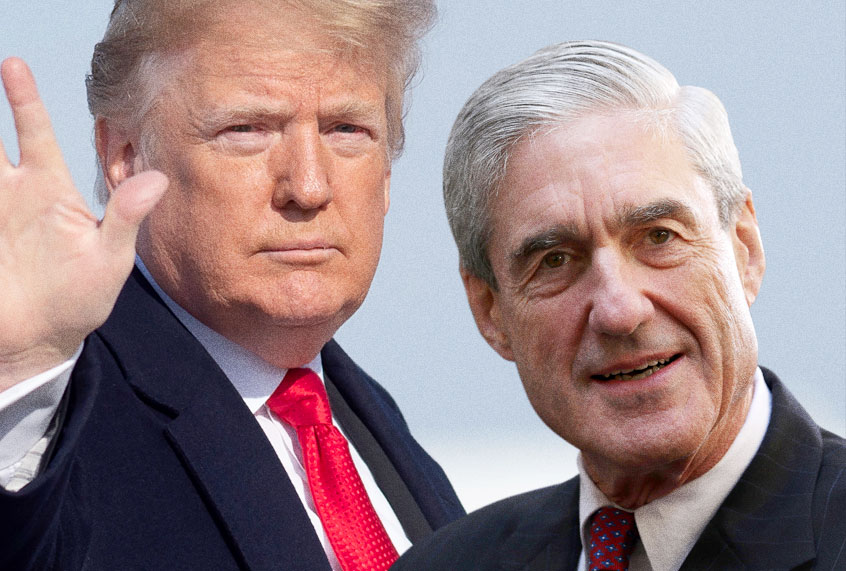As Special Counsel Robert Mueller’s Russia investigation accelerates, President Donald Trump’s defenders continue to spin their wheels in a desperate attempt to undermine the investigation’s conclusions before it’s even completed.
Fortunately, the Mueller probe critics are not particularly inventive, and they repeat the same talking points and make the same mistakes repeatedly, so they’re easy to debunk. Here are three of the biggest assumptions the Trump’s defenders make about the investigations, and why they’re misguided:
1. Mueller is biased against Trump.
It’s become an article of faith among many pro-Trump Republicans that the special counsel is irredeemably biased against Trump. They cling to this belief despite the fact that he was picked by a Trump appointee, and the choice was widely praised byDemocrats and Republicans.
Tuesday night on Fox Business, for example, host Lou Dobbs literally said Mueller is “trying to kill” Trump. But there’s just no basis for this claim, which is even more transparently desperate because it’s been made before Mueller has ever made any allegations against Trump. This isn’t how defenders of the innocent act.
Before former FBI Director James Comey revealed the results of his investigation into Hillary Clinton’s emails, her allies weren’t calling him biased against her — they were predicting that he would exonerate her because they didn’t believe she had done anything illegal. Comey’s actions later proved much more complicated and opened him up to criticism, but that criticism was based on his actions, not the mere fact that that he was investigating her.
The Trumpian assumption that Mueller is biased seems to assume that Mueller will accuse Trump of wrongdoing, which isn’t what you should assume if you think he’s innocent.
Of all the claims made in this vein is the idea that Mueller is somehow looking for revenge against Trump because of a dispute over golf club fees. This frivolous claim is barely worth discussing, but if it intrigues you, Slate had it pretty well covered.
2. Process crimes don’t matter
Trump defenders have made a lot out of the fact that many of the charges in the Mueller probe thus far relate to false statements to the FBI or Congress. After Michael Cohen pleaded guilty to lying to Congress about a Trump Tower Moscow deal, Sen. Lindsey Graham (R-SC) dismissed it as a “process crime.”
Now, there are good reasons to be skeptical of prosecutors who grope to find charges for subjects of an investigation that they can’t prove committed any other crimes. This tool can certainly be abused.
But there’s no reason to think Mueller is abusing it. Trump’s allies, including Michael Flynn, Paul Manafort, George Papadopoulos, and Michael Cohen have all reportedly lied to investigators about an investigation central to the country’s national security. Former Attorney General Jeff Sessions misled the Senate about the same topic. This abundance of lies is bad in itself — it can stymie an important investigation — and it is also evidence that other crimes are being covered up.
By making clear that he is willing to charge people with lying, Mueller improves his chances of getting honest answers out of other witnesses from his investigation. And, as many have argued, he may be using the lying charges strategically to apply pressure on targets of the investigation without revealing his hand, which could be a wise course of action.
And finally, Republicans should recognize that, even if all those who have lied to Mueller and Congress are innocent of any other crimes, it would still be bad that they lied. This investigation is important to the American people, and it’s important that witnesses tell the truth in it, even if it’s embarrassing or inconvenient to do so. The fact that people have lied means, at the very least, that they undermined the integrity of an investigation of major significance — and that fact should be taken very seriously.
3. They assume Trump is innocent of everything.
Alan Dershowitz, writing for the Wall Street Journal wrote: “I don’t believe that the Mueller report will directly accuse President Trump of any crimes. Collusion—even if Mr. Mueller were to conclude that it occurred—is not a crime.”
Collusion, of course, could be a crime, if it involves colluding to do something illegal. It could then be charged under conspiracy statutes, which Mueller has already employed.
But why doesn’t Dershowitz think Trump has will be accused of any crimes? He doesn’t say, and of course, he can’t know. In fact, given all the reporting about has shady financial shenanigans, his interactions with corrupt figures, and his dubious international dealings, it’s almost guaranteed that Trump has committed some crimes that investigators will discover, even if it doesn’t come from Mueller. New York Attorney General Barbara Underwood has already launched a lawsuit alleging serious civil violations by Trump. He has already been implicated in a federal crime by Michael Cohen.
This apparent assumption that Trump is innocent, which implicitly lies behind much of the fuming at Mueller, is somewhat belied by the first mistake outline above. While Trump’s defenders seem to insist that he couldn’t and wouldn’t have done anything wrong, they also clearly fear that Mueller, who was initially praised by the Newt Gingrich is “impeccable for honesty and integrity,” will find something on him.
It is clear that, even as their arguments assume Trump is innocent, many of the president’s defenders don’t actually believe it. That’s why they don’t believe Mueller should still be investigating, or should be allowed to probe his businesses, or pursue “process crimes.”
They believe, as any reasonable observer should, that Trump is probably guilty of some serious crimes. They just don’t care.



